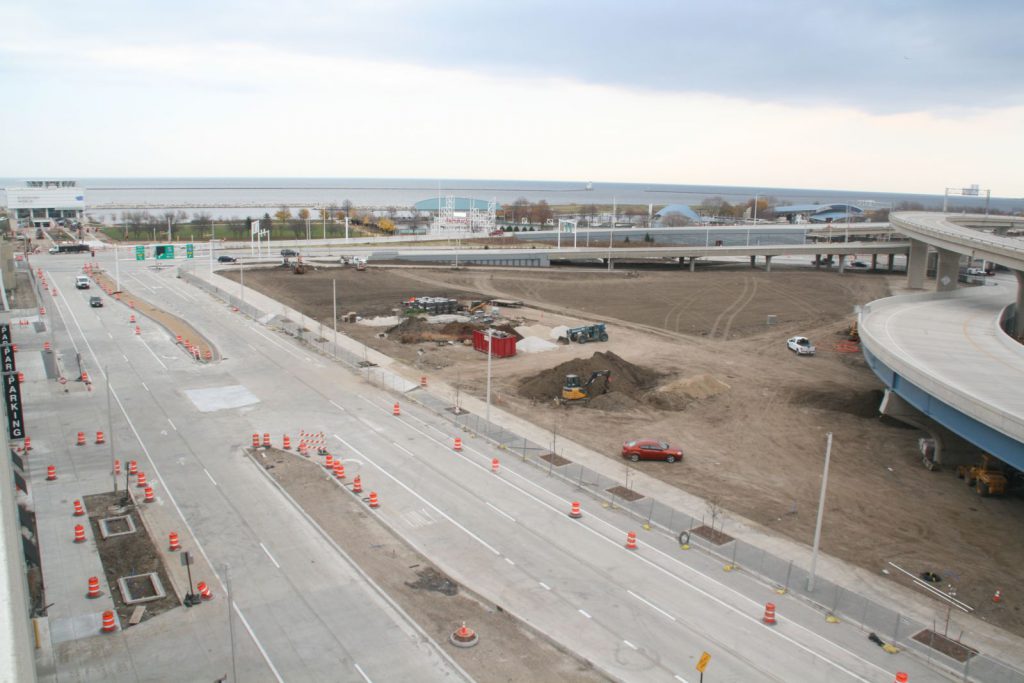Can Milwaukee Win The Amazon Challenge?
If a lower cost of living for employees is a key criteria.
Amazon’s request for proposals (RFPs) from cities, states, provinces, and other government entities desiring to host its second headquarters (“HQ2”) has generated a flurry of press speculation attempting to guess the winner. Sadly perhaps, Milwaukee did not make the cut on any of these I have found. In this column I look at reasons why—and why not—Milwaukee could be a viable candidate. Next week I consider whether winning would be a good thing for Milwaukee and Wisconsin.
Amazon asks for proposals on behalf of entire Metropolitan Statistical Area (MSA) so long as their population exceeds one million. With 1.6 million residents, Milwaukee is one of the smaller metros. Besides Milwaukee County, the Milwaukee MSA includes Waukesha, Ozaukee, and Washington counties. The RFP asks for sites within 30 miles of the population center, ruling out any site west of Delafield or north of Port Washington.
Some argue that Amazon’s RFP is a sham. With its considerable command of data analysis, in this view, Amazon already knows where it wants to go. By not tipping its hand and appearing to be open to a wide variety of sites and metro area, Amazon puts pressure on the metros to sweeten their financial offers. As next week’s article will discuss, Amazon has become very skilled at mooching off governments.
Three New York Times journalists, under the cheeky title: Dear Amazon, We Picked Your New Headquarters for You, applied a series of screens to the 55 or so MSAs with over 1 million residents to narrow the field. Eventually, they narrowed the list to four metros and, finally, Denver.
Others came up with other lists, using different criteria. A Brookings analysis came up with 20 cities based largely on the strength of their talent pool. A Bloomberg columnist’s list has five cities also based on the ability of the local labor force to accommodate Amazon’s needs. One article in CityLab suggests that while the coastal cities have the capacity to accommodate Amazon, they already have high costs, and suggests Chicago. A second CityLab article suggests six cities with their pros and cons. Finally two columnists in Amazon’s hometown paper, the Seattle Times, have predictions here and here. As with the Times article, Denver appears on a number—but not all–of these lists.
While Amazon says it open to both urban and suburban sites, its pride in the urban atmosphere of its Seattle headquarters is clear:
Amazon has been a catalyst for development in downtown Seattle with an abundance of restaurants, services, coffee shops, and for the redevelopment of South Lake Union and Denny Triangle with its sustainable buildings and open spaces.
To give an idea of Amazon’s impact on Seattle, here is an image from Google maps of the area just north of downtown Seattle. The red circles mark Amazon buildings.
Given that Amazon and Seattle seem made for each other, why doesn’t Amazon just keep adding to its Seattle headquarters? Although Amazon does not spell out its reasoning, Seattle has become a very expensive city. Among the causes of escalating housing prices are Amazon and its 40,000 Seattle employees. They are also victims of high living costs. Amazon also takes credit for the growth of Fortune 500 companies’ Seattle engineering/R&D centers from 7 in 2010 to 31 in 2017.
Amazon reports that its average pay in Seattle and at the new headquarters would exceed $100,000. Even this quite lofty pay doesn’t go very far in Seattle. According to the Sperling’s Best Places website, Seattle’s $100,000 is equivalent to a Milwaukee salary a bit under $50,000. Another way of looking at this is that an Amazon employee transferring from Seattle to Milwaukee would see the equivalent of a $110,000 raise.
This difference in cost of living is due entirely to the difference in housing costs. According to Sperling’s, housing in Seattle costs six times equivalent housing in Milwaukee. Each of the four finalists selected by the Times have housing costs three or more times those in Milwaukee.
Aside from cost, quality of life depends on many different things, many subjective. For a potential employee who wants to spend his or her free time in the mountains, there is little Milwaukee can do to compete with the Cascades and the Olympics—or the Rockies if Denver is chosen. While the Kettle Moraine has its own appeal, it is not the same.
Aside from scenery, moderate weather is an asset Seattle and the Northwest are known for. Seattle enjoys cool summers and temperate winters, as shown below. By comparison, Milwaukee has colder winters and somewhat warmer summers.
While the Pacific Northwest is famous for rain, Seattle’s total precipitation is not notably different than Milwaukee’s. The difference is in timing. Seattle’s rain comes mainly in the winter. This helps explains the Northwest’s current problem with forest fires, one that will likely worsen with global warming.
This brings up the issue of the relative vulnerability to global warming. As the earth heats up, expect more fires in the Northwest. In addition, the mountain snowpack will decline, threatening cities’ water supply. By comparison, Milwaukee is likely to have warmer winters and so far, at least, summers have not become noticeably warmer. The warmer winters, while reducing cross-country skiing opportunities, are generally considered a good thing.
There are several areas where short-sighted policy decisions by Wisconsin likely hurt the Milwaukee metro’s chances. A more robust public transportation system would help Milwaukee’s chances. The RFP says the company has paid $43 million “into the city’s public transportation system as employees’ transportation benefit.” It ask applicants to “identify all transit options, including bike lanes and pedestrian access to the site(s). … Also, include connectivity options: sidewalks, bike lanes, trams, metro, bus, light rail, train, and additional creative options to foster connectivity between buildings/facilities.”
Compared to Seattle, Milwaukee falls short in both walkability, although compared to the typical American city it does quite well. Milwaukee is rated “somewhat walkable” versus Seattle’s “very walkable.” However, some neighborhoods in Milwaukee are up there with the best Seattle neighborhoods, suggesting that Amazon employees who value a walkable neighborhood can find it, and at a far lower price.
Likewise, Bicycling Magazine rates Milwaukee 46th among American cities, compared to 5th for Seattle. The League of American Bicyclists gives Milwaukee a Bronze award, compared to Gold for Seattle.
The Amazon RFP asks applicants to demonstrate a “stable business climate for growth and innovation.” Several of the writers speculating on which metro Amazon will pick took this as a requirement for past growth. As the next chart shows, net jobs in the Milwaukee MSA have been essentially flat since 1990, compared to strong overall growth in Seattle and Denver—identified by a number of writers as a leading candidate for HQ2.
The next chart shows jobs in information technology for the same three metros. The Milwaukee area saw a decline in these jobs. By contrast, Seattle saw strong IT job growth. Early on, Denver closely tracked Seattle in information jobs until it was clobbered by the “dot-com” collapse. The difference probably says less about the cities themselves than the relative fortunes of firms starting in Seattle and Denver.
The argument that Milwaukee is a viable candidate for Amazon’s HQ2 runs something like this: Amazon has concluded that its impact on Seattle needs to be capped. In particular it has already helped drive up housing prices to the point that are unaffordable to many of the people it wishes to attract. Milwaukee has many of the features attractive to the kind of employees it needs to attract—including older, walkable neighborhoods, interesting restaurants, and improving bicycle facilities—and those missing can be fixed. Rather than looking for a city that looks like Seattle today—and accepting the resulting high housing prices, it makes more sense to look for the equivalent of Seattle in 1994 when it started, not Seattle today.
The question is whether choosing a city like Milwaukee will adversely affect its ability to attract the kind of employees it needs. Does a Milwaukee location make doing so more difficult—or do much lower housing costs compensate for a lower “coolness” factor? Some time ago I reported on research by Cushman and Wakefield on parts of cities—including Milwaukee—that were particularly attractive to talented millennials.
In 1994, the Seattle MSA had a bit less than twice the total number of all jobs and a bit more than twice the information jobs that the Milwaukee metro has today. The question for Amazon is not whether such employees are already awaiting it in Milwaukee, but whether such employees would be easy to attract to Milwaukee.
Data Wonk
-
What the 2025 Elections Data Tells Us
 Feb 11th, 2026 by Bruce Thompson
Feb 11th, 2026 by Bruce Thompson
-
How Wisconsin Ranks On Minimum Wage
 Jan 28th, 2026 by Bruce Thompson
Jan 28th, 2026 by Bruce Thompson
-
How Has Trump Done on the Economy?
 Jan 14th, 2026 by Bruce Thompson
Jan 14th, 2026 by Bruce Thompson



























from your lips to jeff bezos ears!! To even be in the running for this will cause the rest of Scott Walker’s hair to fall out and create real apoplexy among the legislators who have done all they can to hamstring Milwaukee’s ability to govern itself as well as progress. And, of course, after Foxconn there’s nothing left for the state to contribute so this is but a pipedream! The tragedy in all this whether its foxcon or Amacon er Amazon is that it is entrepreneurial activity based on the development of new products and ideas which offer long term solutions to employment needs. And we have a legislature and governor that fail to udnerstand the role that post secondary education and the research in which its faculty is involved plays. But it’s fun to dream!! Thank you, Mr. Wonk!!
No, not a chance. The stats you present about the number of people in the tech workforce, the growth rate of the economy and general business climate relative to Seattle is all you needed. Precipitation comparison? Walkable neighborhoods and transit are stated as major factors, but relative to the others I doubt that they will make or break a city’s chances. Seattle has poor public transportation. Congested highways too. I’ve visited several times and fail to see how it is any more walkable than Milwaukee. Milwaukee is not in the running. Why would they award this to a city that has done little to join in on the technology revolution of the past 25 years? Just looking at this realistically.
Would Urban Milwaukee please stop publishing that photo of the land opened up by reconfiguring the lakefront freeway with the embarrassing caption “Potential Tower Site for Amazon”? This is the second time in two weeks. This is also the purported “Potential Tower Site for Foxconn” and the “Potential Tower Site for Johnson Controls.”
There is more chance of Amazon building a tower on my butt than in downtown Milwaukee.
It stems from this op ed (http://urbanmilwaukee.com/2017/09/08/op-ed-why-amazon-should-pick-milwaukee/). Feel free to suggest a different freely available photo we should use.
One point not covered in this very interesting piece is the consistency between the culture of the host city, and the Amazon culture, described by some organizational analyst as an “ambidextrous organization”, in other words, steadily improving on the existing business, while constantly creating space within the organization to build businesses of the future. As Bezos, says, if you swing for the fences, you’ll strike out a lot, but you’ll also hit a lot of home runs. Milwaukee clearly has many who understand Bezo’s point, the redevelopment of signicant sections of the city illustrates this, but the State as whole, not so much, and too often even locally, any change here is viewed with skepticism (quality mass transist being a huge one) and punished by the State. The Milwaukee area had a golden opportunity to be home for the manufacture of the next generation of trains, but thanks to the State of Wisconsin, this opportunity was lost. Businesses across the country remember this bit of idiocy on the part of Wisconsin, with the same group of fools still running the State.
I think this is a very well written summary of the factors for location in MKE vs others. Milwaukee has not been a top consideration for a large “tech” workforce other than health/bio and maybe some other niches. It would be interesting to see a story for how MKE can ramp up such workforces as the employers with specialized workforce needs phase in their relocations. I could see how this could be a very feasible pitch for potential employers who have tapped out locations which have become high cost as well.
I don’t believe that Amazon is looking for a company town but I do believe that they’re looking for an environment that has a track record and willingness to confront/deal with problems that come up.
For example, if there’s a traffic problem… the region would come together & actually implement some solutions (transit / roads / tolls / bikeshare / zoning).
They’re not looking for a metro or state that constantly bickers and exacts political revenge on other areas of the state. They’re not looking for politicians that throw up their hands when a problem comes along and then say the solution is tax cuts. Please understand, I have no time for false equivalence. This is a GOP problem or feature depending on your outlook.
In short, as someone who’s looking for a HQ location, they’re not racing to the bottom. All those problems above can’t be overcome by throwing a big bag of money at a company.
When I (while travelling ) meet people, they are usually (whether youngish and highly educated or older) professionals, and they speak very highly of any time they spent here, whether visiting on business, or for more incidental reasons.
They like the lakefront, old neighborhoods (east side), or accessible to downtown, parks, and the extensive cultural and recreational opportunities. Only thing missing is mountains. I think young professionals would be very attracted to the affordable high quality of life here, and the proximity (for excursions) of Chicago is also a plus.
As others have noted, Milwaukee really stands alone and separate from the wisconsin as we now know it. Yes, we have been the punching bag for the parochial bullies, but we are still here and I (like so many others) cannot think of a place to retire to that is both as comfortable and stimulating.
Chicagoans used to mass transit find milwaukee SO easy!
One of their major needs is great schools so Racine/Milwaukee schools run by the white, racist, male, liberals will end that idea quick.